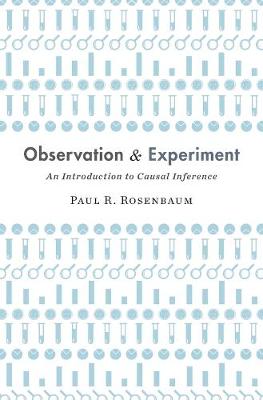In the daily news and the scientific literature, we are faced with conflicting claims about the effects caused by some treatments, behaviors, and policies. A daily glass of wine prolongs life, or so we are told. Yet we are also told that alcohol can cause life-threatening cancer and that pregnant women should abstain from drinking. Some say that raising the minimum wage decreases inequality while others say it increases unemployment. Investigators once confidently claimed that hormone replacement therapy reduces the risk of heart disease but today investigators confidently claim it raises that risk. How should we study such questions?
Observation and Experiment is an introduction to causal inference from one of the field's leading scholars. Using minimal mathematics and statistics, Paul Rosenbaum explains key concepts and methods through scientific examples that make complex ideas concrete and abstract principles accessible.
Some causal questions can be studied in randomized trials in which coin flips assign individuals to treatments. But because randomized trials are not always practical or ethical, many causal questions are investigated in nonrandomized observational studies. To illustrate, Rosenbaum draws examples from clinical medicine, economics, public health, epidemiology, clinical psychology, and psychiatry. Readers gain an understanding of the design and interpretation of randomized trials, the ways they differ from observational studies, and the techniques used to remove, investigate, and appraise bias in observational studies. Observation and Experiment is a valuable resource for anyone with a serious interest in the empirical study of human health, behavior, and well-being.
- ISBN10 067497557X
- ISBN13 9780674975576
- Publish Date 14 August 2017
- Publish Status Active
- Publish Country US
- Imprint Harvard University Press
- Format Hardcover
- Pages 400
- Language English
